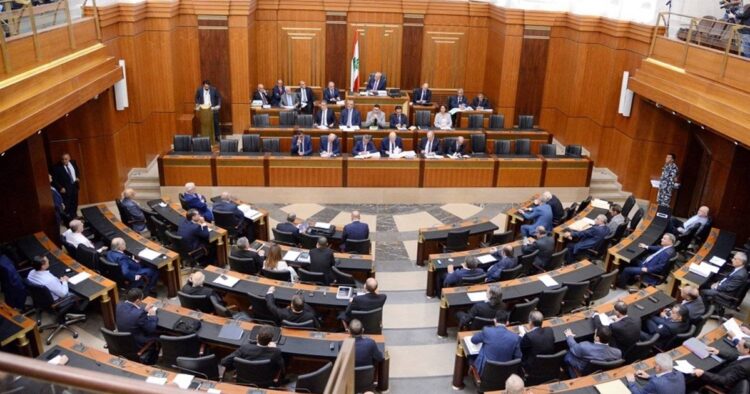Lebanon’s parliament recently approved the amended budget for 2024, but experts argue that it falls short of crucial reforms needed to address the country’s prolonged financial crisis. The budget, passed after three days of heated debates, has raised concerns about the government’s ability to steer the nation out of a financial meltdown that has gripped the public sector for nearly five years.
The amended budget, proposed by caretaker Prime Minister Najib Mikati, anticipated higher state revenues through increased Value Added Tax (VAT) and customs fees. Additionally, measures were included to penalize those who had profited unfairly from the central bank’s currency exchange platform and traders exploiting subsidies on imports. Despite these measures, critics argue that the budget lacks comprehensive reforms to tackle the root causes of Lebanon’s economic woes.
Lebanon’s economy has been in turmoil since 2019, with the local currency losing a staggering 95% of its value, widespread bank restrictions on depositors, and over 80% of the population falling below the poverty line. The crisis, stemming from decades of lavish spending and corruption among the ruling elite, has resulted in estimated losses exceeding $70 billion, primarily at the central bank.
Efforts to implement essential reforms, as recommended by the International Monetary Fund (IMF), have been obstructed by vested interests within Lebanon’s political and economic class. Key reforms include resolving the banking crisis and unifying multiple exchange rates for the Lebanese pound. The IMF, which proposed a $3 billion aid package for Lebanon, emphasizes the urgency of these reforms to avert a never-ending crisis.
Prime Minister Mikati, defending the budget in parliament, asserted that the government had halted the ongoing collapse and initiated the recovery phase. However, around 40 parliament members voiced objections during the session, challenging Mikati’s claims.
The 2024 budget, as seen by Reuters, used multiple exchange rates, raising concerns among parliamentarians. The calculated deficit of 0% indicates expenditures equal to revenues, but critics argue that the use of various exchange rates may give a misleading impression of the government’s financial health.
The Policy Initiative think tank criticized the budget, stating that it disproportionately burdens middle and lower-income households compared to affluent ones. Lowering the threshold for businesses to pay VAT and offering tax exemptions for big businesses were cited as examples of measures that could impact vulnerable groups negatively.
Sami Zoughaib, an economics expert at The Policy Initiative, described the budget as “Lebanese economic alchemy” that lacks a clear economic purpose and vision. He emphasized that it perpetuates a cycle of decay for the state, the economy, and society, without addressing the fundamental issues contributing to Lebanon’s crisis.

















Comments